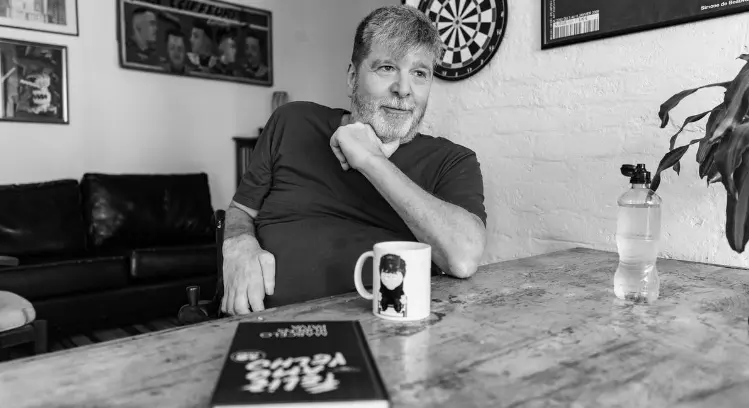Life-Altering Tragedy, Award-Winning Author, and Hollywood Blockbuster: Marcelo Rubens Paiva’s Astonishing Journey at Unicamp’s Hilda Hilst Resident Artist Program.
“The mission of a writer” will be the theme of the in-person lecture by the new guest of Unicamp’s Hilda Hilst Resident Artist Program, writer, playwright and screenwriter Marcelo Rubens Paiva. The in-person event opens the free program that continues until December 1st with five literary workshops in virtual format. “I’m looking forward to meeting people, talking, listening, exchanging experiences and even getting to know myself and my own work better, because talking about it makes us reflect on what we do,” says the writer. The program is open and has been given the name “From the beginning to here”, as it will look back over his 40-year career and his time in Campinas as a student at Unicamp.
Author of 15 books in the last 41 years and considered one of the most awarded writers in the country, he comments that “the publishing market has changed a lot in this period, there are new publishers, small ones alongside large groups, and today it’s cheaper to publish a book than in the past. This encourages the emergence of new authors and technological innovations make it easier to win over readers, who can access books via kindle (digital book reader), audiobooks and even writers who use social networks to write.” Among the new developments in his career, he says that he is still working on a new book, in which he recounts his experience of being a wheelchair-bound father and the recent Covid-19 crisis.
Another project he is following closely is the film adaptation of his book “Ainda estou aqui” (2015 – winner of the Jabuti Prize) by the also award-winning filmmaker Walter Salles. In the cast Fernanda Torres and Fernanda Montenegro play his mother Eunice Facciolla Paiva (1932-2018), a lawyer who had a prominent career defending the rights of indigenous people and the politically disappeared, playing an important role in Brazil during the years of lead and re-democratization. Selton Mello also stars in the film as Marcelo Rubens Paiva himself. The feature film is in the final stages of recording, but has yet to be released in cinemas.
PERSONAL DRAMAS
Born in São Paulo in 1959, Marcelo Rubens Paiva was left fatherless – along with his four sisters – at the age of 11. His father was Congressman Rubens Paiva (1929-1971), who was removed from office by the 1964 coup and, seven years later, kidnapped from his home by the dictatorship. Illegally imprisoned, tortured and deprived of contact with his family, the politician was killed in the Army’s cellars in Rio de Janeiro. His body was never found. In an interview with Jornal da Unicamp, the writer says that he lived in Barão Geraldo between 1977 and 1979, living intensely as a university student at Unicamp, where he joined at the age of 17. During this period, he produced short stories, lyrics, poems and various texts for fanzines. In December 1979, an accident changed his life: when he jumped into a lake during a party, he broke a vertebra and became paraplegic.
“Unicamp has always been in my fantasy as the place where I was very happy and, on the other hand, as the place where I suffered a tragedy, the worst of my life, which changed my life. The tragedy wasn’t exactly at Unicamp, it was on Rodovia dos Bandeirantes, in a lake that still exists today on a farm, but it was at an end-of-year party for the third year of agricultural engineering,” he recalls. In the process of recovering and adapting to the new limiting conditions, Paiva was invited by Editora Brasiliense to write a fiction novel based on his story. Released in 1982, “Happy Old Year” became a sales phenomenon and was later adapted for film and theater. And it put Marcelo on the literary market.
“This conflict, in which a person has to, from one day to the next, change all their life plans and try to rebuild themselves, try to erase the past and be a new person, is something universal. It’s like the myth of Sisyphus, of lifting a stone up a mountain every day and watching it fall,” said Paiva, talking about the scope and timelessness of the plot of “Happy Old Year”. He describes the pressure that surrounded him as a 23-year-old first-time author as “frightening”. At the time he was studying Radio and TV at USP’s School of Communications and Arts (ECA).

